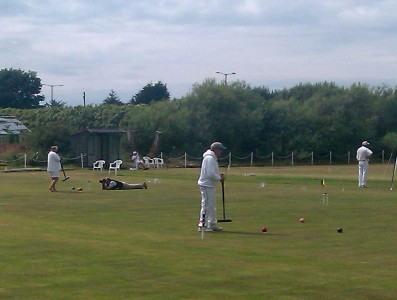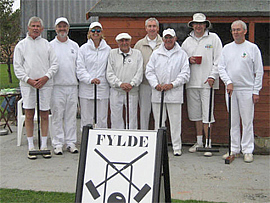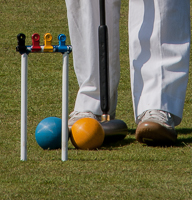NWFCC Handicappers’ Workshop Presented by Don Williamson and James Hawkins on 17 March 2013, as recorded by the meeting’s secretary P Wilson.
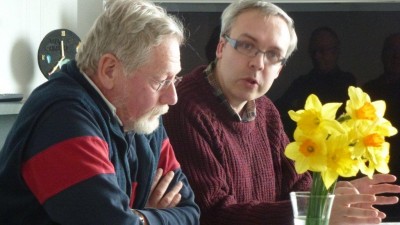 At the Spring meeting of the Northwest Federation it was decided that it would be beneficial if all our club and CA handicappers could come together to discuss initial handicap settings and automatic handicap changes and to answer the question of whether all clubs are approaching this in the same way.
At the Spring meeting of the Northwest Federation it was decided that it would be beneficial if all our club and CA handicappers could come together to discuss initial handicap settings and automatic handicap changes and to answer the question of whether all clubs are approaching this in the same way.
Those present: David Walters (CA Handicapper GC) (Bowdon), Jean Hargreaves, Paul Rigge (Bury), Janet Davies, David Guyton, Derek Bell Jones, Maureen Iveson (Chester), Bob Connop (Culcheth) , Lee Hartley, Liz Wilson, Alan Moreton (Fylde), Geoff Whitaker, Ron Welch ( CA Handicapper AC) (Pendle & Craven).
Paul Rigge introduced the presenters and the attendees briefly introduced themselves and their various involvements in the game.
James asked a question to the floor: Why do we have a handicap system? After a short time we agreed the reason to simply be: To make the game better. With this in mind the automatic handicap system (AHS) was reviewed by a lengthy and lively discussion where all present took part.
Firstly several questions were discussed. Do players want to keep their handicap right? Do they want to keep it higher so they can win? Do they loose on purpose? And do all their games go on their card?
The meeting decided to forgo discussion on the first three questions but would return to the last at some length.
James then highlighted a point that is often overlooked or underestimated. This is where a player has very good tactics and strategy when receiving bisques, but a very poor strategy when giving them. It is a different mind set. Additionally other factors such as fast and slow lawns, hot or cold weather, early or late games may be thought of as ‘the same for both players’ but how each player copes with them in relation to their handicap is not the same for both. The handicapper should be aware of this.
The meeting then looked at some maths. At any time there is a ‘World Pool’ WP of index points. These points move between players in a zero sum +10 and -10 in each game. When a player retires from the game, more often than not, they retire at a lower handicap than when they started. That is to say they take out of the system more index points than they brought in as a beginner. Over twenty years the number of index points in the WP has fallen causing a drift in the system. Within the WP there are several Country Pools and Federation Pools and Club Pools. The problem of drift can be apparent if you travel overseas, enter tournaments far afield, and or play in the NW Fed league. Australia took a decision to increase all players by 2 steps quite recently to bring themselves in line with the other countries.
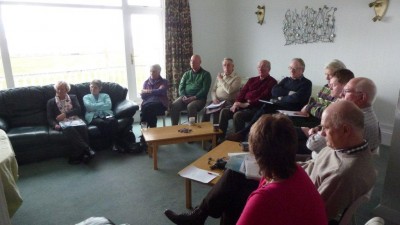 The meeting noted that there is a trend for minus players to play advanced amongst themselves. And for handicaps 8 – 12 to play handicap tournaments. Those players in the 2 – 7 bracket fall between stools. They struggle in A class events and struggle in handicap events. There is a growing number of B class tournament catering for them.
The meeting noted that there is a trend for minus players to play advanced amongst themselves. And for handicaps 8 – 12 to play handicap tournaments. Those players in the 2 – 7 bracket fall between stools. They struggle in A class events and struggle in handicap events. There is a growing number of B class tournament catering for them.
Is this fractionating due to the drift in the index? The meeting concluded that as a Federation we should abide by the CA rules. The CA in turn have to comply with the World Federation rules, so no changes to the handicapping system were going to happen soon. For example +10 for the winner -10-x for the looser puts points back into the system. (x was not calculated here). When the handicapper ‘chops’ a player this puts points back into the AHS and this was accepted as a healthy thing for it. But this should not be done by the Northwest Federation unilaterally.
Don then outlined the duties of the Club Handicapper and CA Handicapper (relates to both GC & AC unless otherwise stated).
- Remember to update your handicap on CA Website. Handicappers should advise CA of changes they make under the guidelines.
- Setting beginners handicaps is very important. Use standard tests for setting initial handicap, see guidelines.
- AHS requires a minimum of 10 games per year to work.
- AC Handicap to Short Handicap and GC Handicap translation – Once done the Short card / GC Card should be maintained in its own right If AC full lawn handicap goes down, then short handicap must be translated again. Once a GC handicap is translated then a separate card must be kept and there is no further change because of AC unless handicapper intervenes.
- Starting GC handicaps at 12 without the test was identified as a problem. It takes too long to sort itself out.
Don had some ideas for the clubs to raise awareness of the correct use of the card: Clubs should have a notice in the club with all handicaps in all disciplines displayed. Members need to update this list to keep it current and tell the handicapper so card may be initialled, the club handicapper should keep an eye on the changes.
The question should tournament managers see all players handicap cards at start and finish of tournament was raised. It is perhaps not a pleasant duty of the manager to demand this. We should educate our players to offer their card to the manager on arrival. It is good practice to list players indices as well as their handicaps.
The meeting then returned to the matter of games being played which are not recorded on handicap cards. Playing within a club situation may skew handicaps. In particular the GC system is immature. Playing a vast number of non-recorded games or games solely with a club increases ability, but does not automatically bring handicap down. However handicappers should take note of obvious improvements that may warrant a reduction. Making the transition between social play (perhaps at an intra-club handicap) and tournament play may cause some players to play poorly due to stress. Some people go to pieces at the thought of competitive play.
The Federation Committee will be recommending extra NW Federation CA handicappers to the Chairman of the CA Handicapping Committee.
MORE INFORMATION
